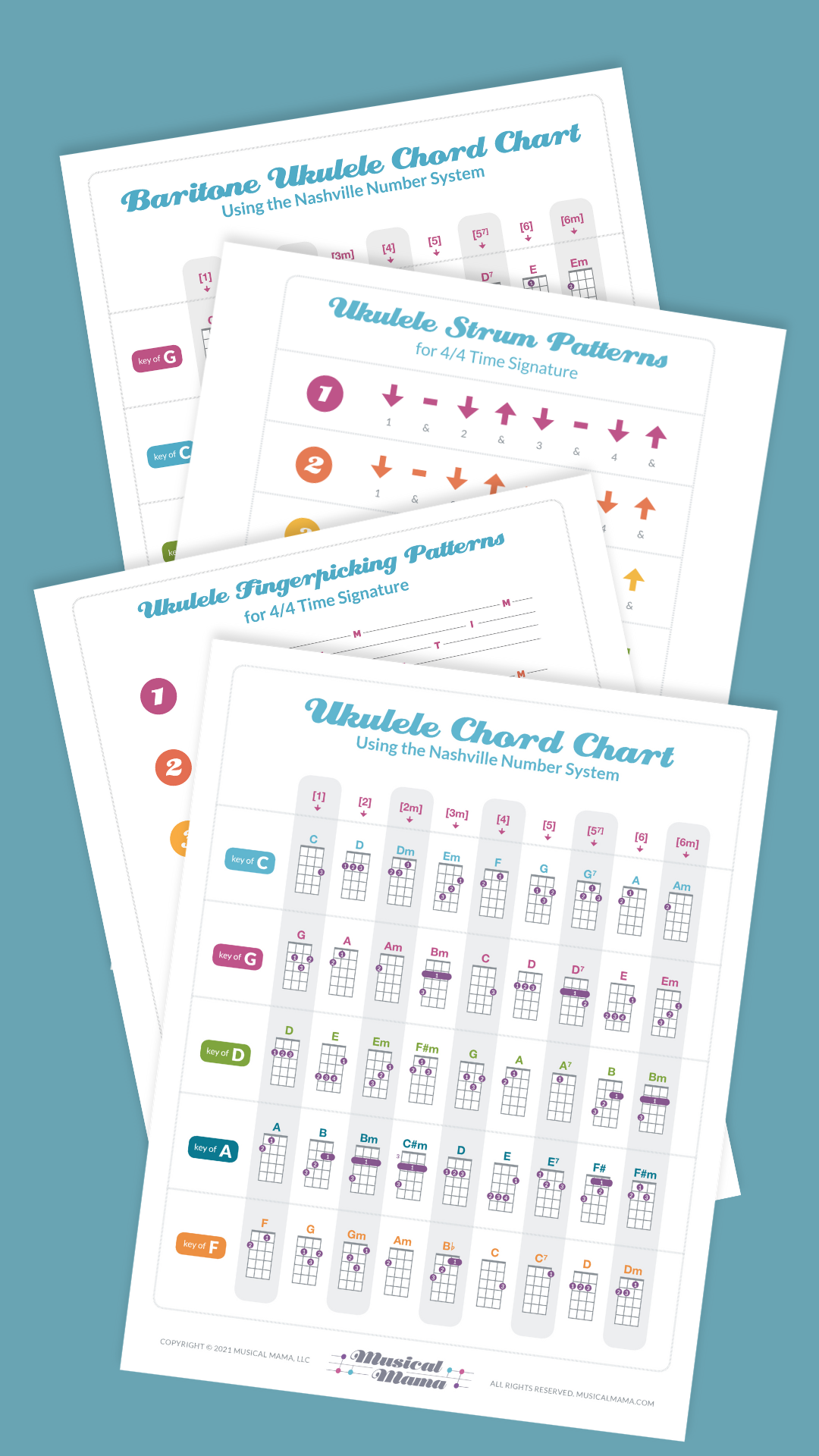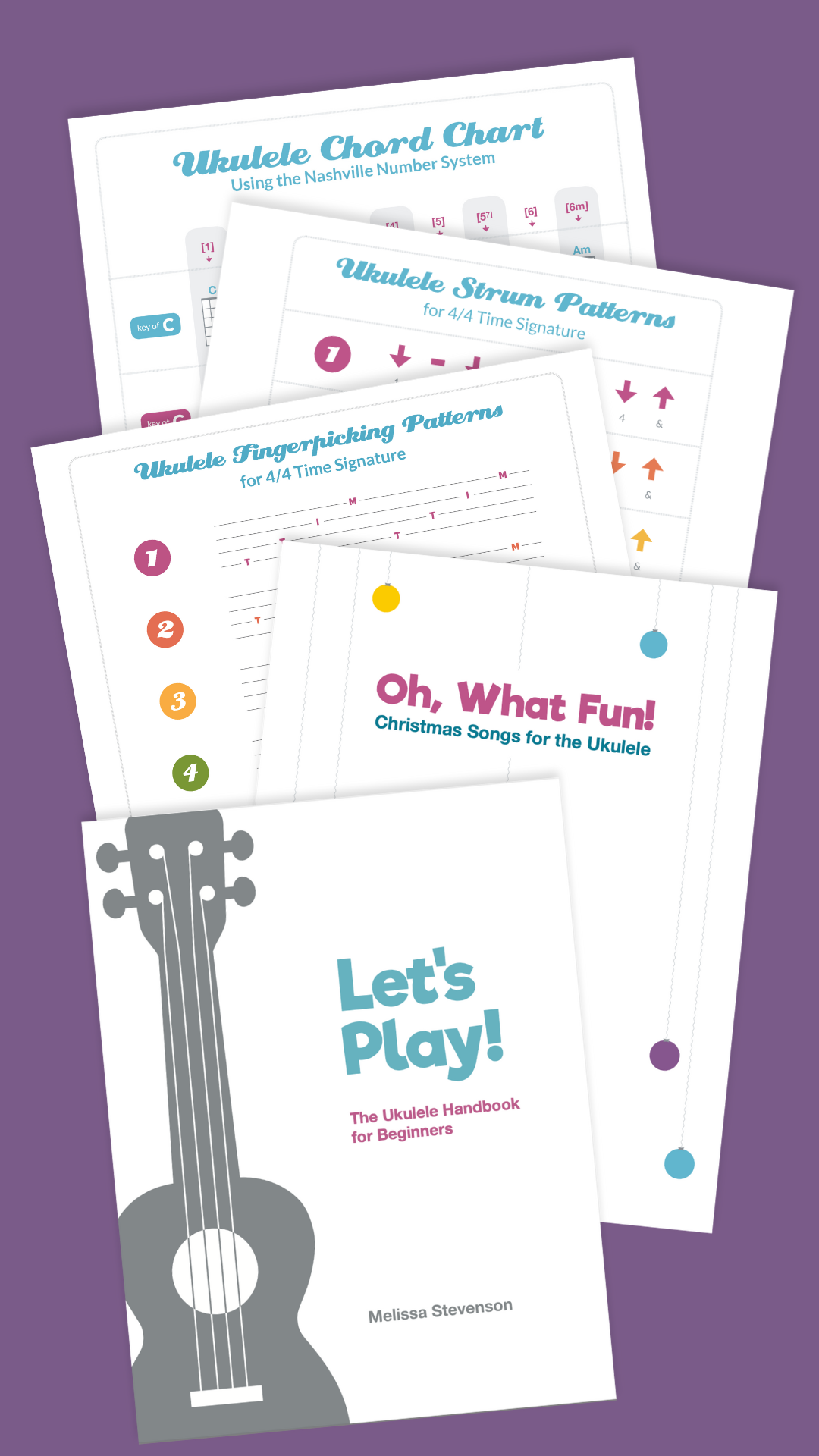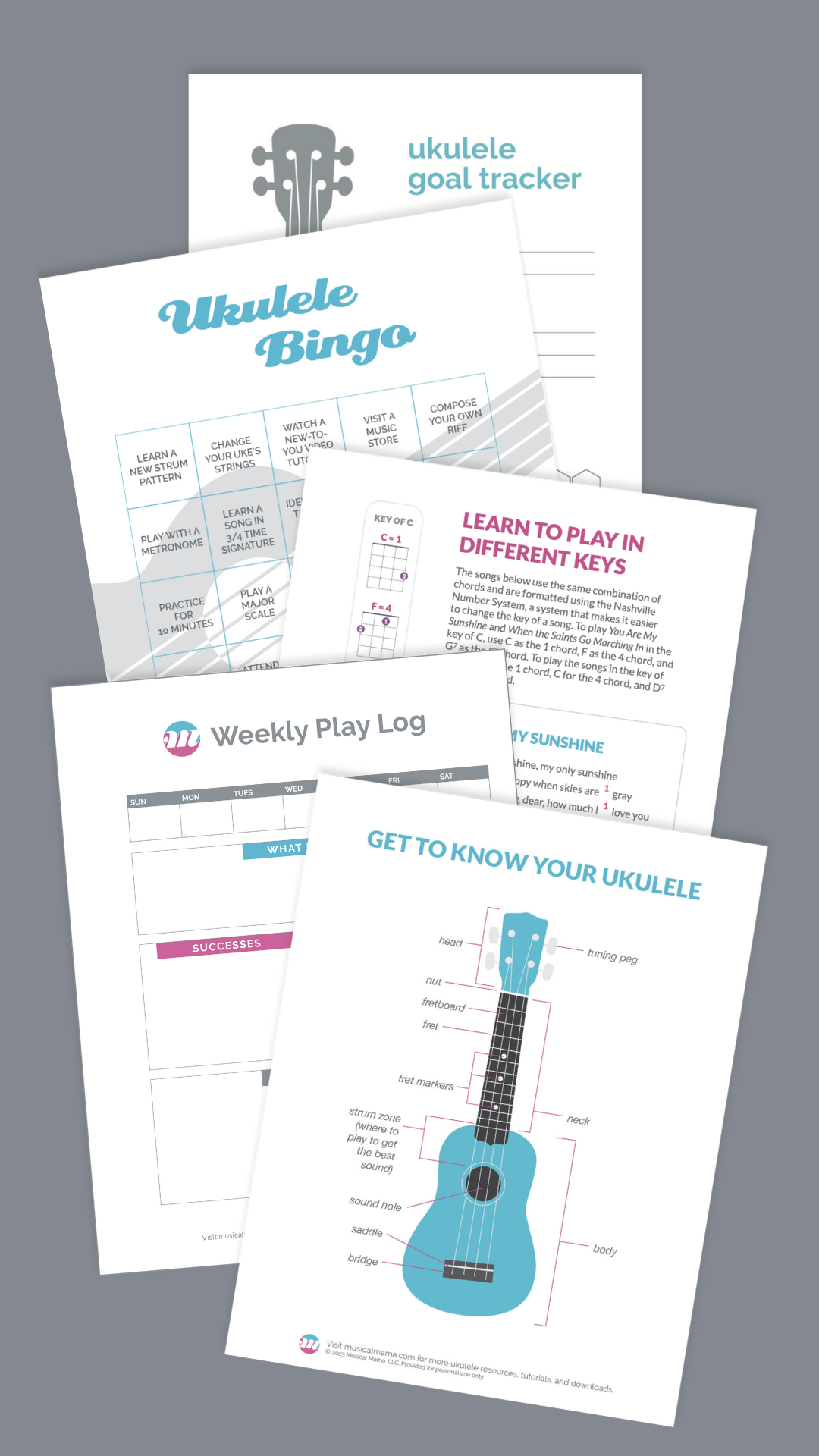I've noticed that the most important part of music making tends to get overlooked by new players. And I get it. Beginning musicians have a lot to keep track of. It's a challenge to learn how to play chords, strum, and sing all at the same time! But if you want your playing to sound smooth and skilled, you will have to . . .
Keep a Steady Beat!
Many beginning musicians start strumming a song at a moderate tempo, then speed up as they play. Another common mistake is to play quickly but slow down for chord changes, zig-zagging the tempo up and down for the duration of a song. These are dead giveaways that you are a new player! So what can you do about it? Here are five tips to help you improve your ability to strum at an a consistent speed, no metronome required:
Play Along to Recorded Music
Being able to play at an even tempo is primarily an endurance issue— new musicians are simply not used to strumming for very long stretches of time. Just as you have to train your fretting hand to make chord shapes, you have to train your strumming hand to keep time. Recorded music won't wait for you to stop and fix a mistake, which means you'll have to start playing past your mistakes— this is the best thing you can teach yourself to do! "Lava" is a nice song to strum to, as it uses the first three chords virtually every beginning ukulele player learns: C, F, and G7. Find the chords and lyrics here, then play along to the Youtube video.
Sing and Dance
I've already written about how dancing is a great way to improve your sense of timing. Singing is effective, too. Songs you love (and have heard over and over again) are pretty well ingrained in your memory bank, so you're probably pretty good at hearing the beat of these songs in your head. Sing them now, with more awareness to their tempo. Then start paying closer attention to the other music you hear. Transfer the beat of the song through the movements of your body. We're not just trying to increase your strumming speed but to develop your overall sense of timing, which includes your ability to feel a beat and maintain it for an extended period of time.
Strum the Air
If you find yourself enduring a long commute or listening to music without an instrument nearby, try air-strumming. Seriously! Strum for an entire song or two. If you're brand new to the ukulele, this will be more of a challenge than you realize, but it's a simple and effective way to develop your strumming endurance and your sense of timing.
Record Yourself
Use a voice memos app on your phone to record what you actually sound like when you sing and play. This is an excellent way to start getting objective about your playing and you'll hear yourself much better than when you're playing live. If this idea makes you uncomfortable, that's all the more reason to do it! Then play it back, making note of what sounds good and what could use some improvement. Record yourself again in a week/month/year and track your progress!
Play with Others
For many of us, making music is a solitary affair. And honestly, that bums me out. Music is so much more fun when it involves family and friends! It's also the fastest way to improve as a musician. Do you have a friend you can play with? Or know someone who loves to sing? Invite them over! When you make music with others, you have to keep time together, and that forces you to be a more active listener. You have to be aware of what everyone else is doing and how your playing fits in.
Are you paying attention to your tempo as you play? How do you track your progress as a musician? If you have any tips to add, I'd love to hear them!





